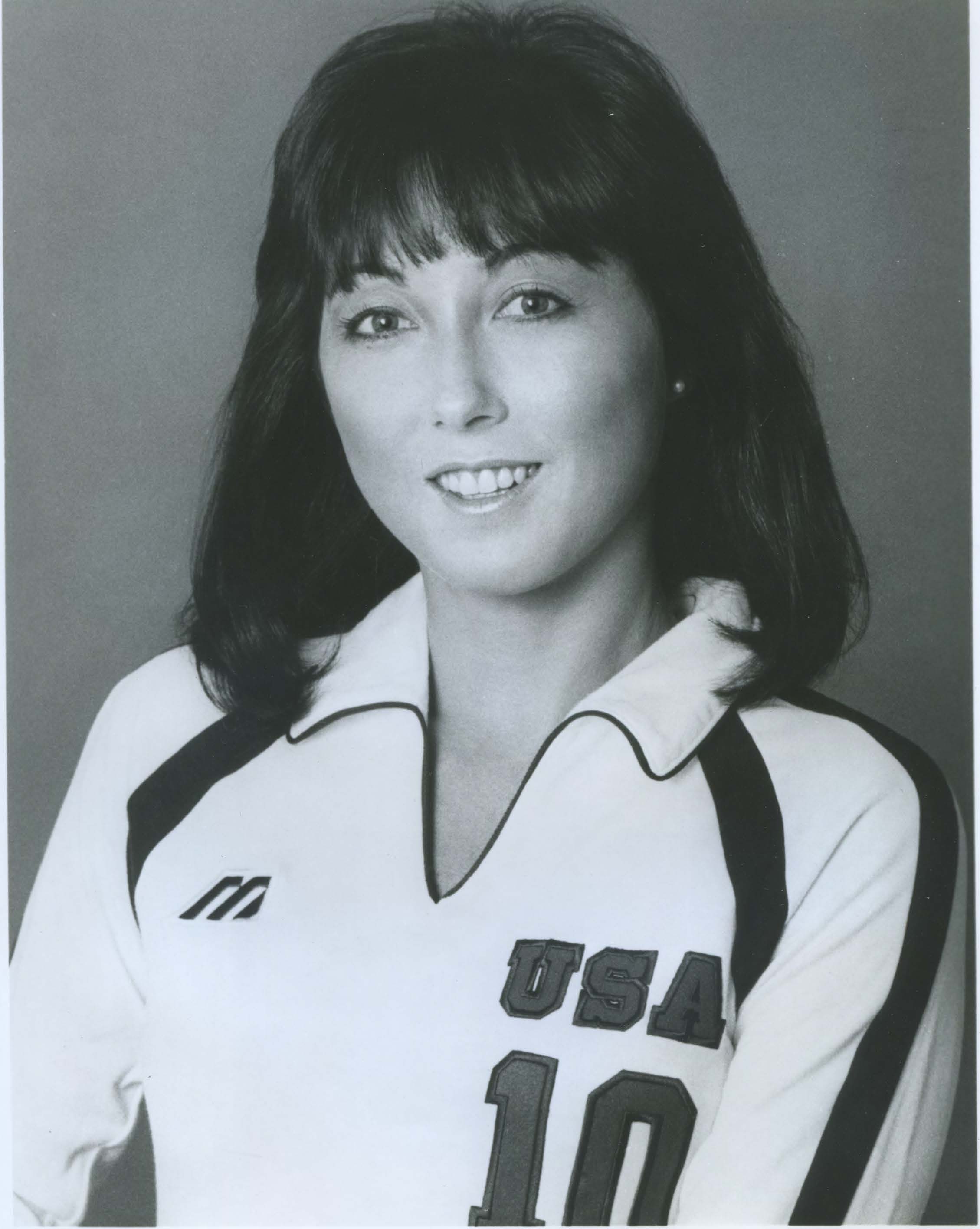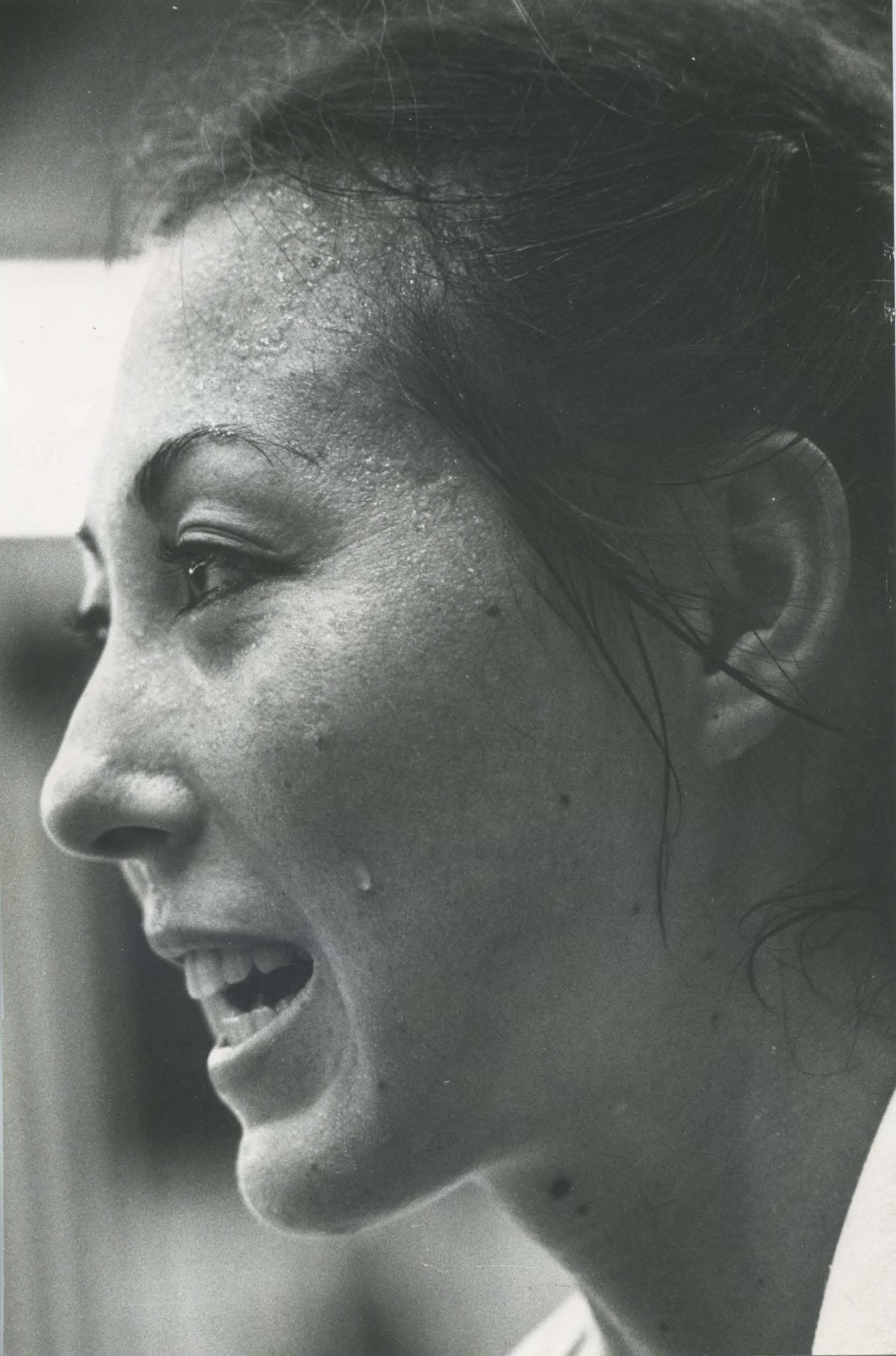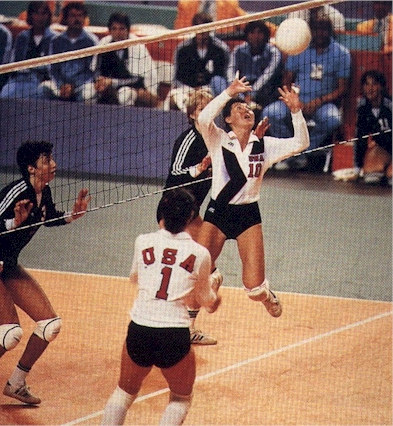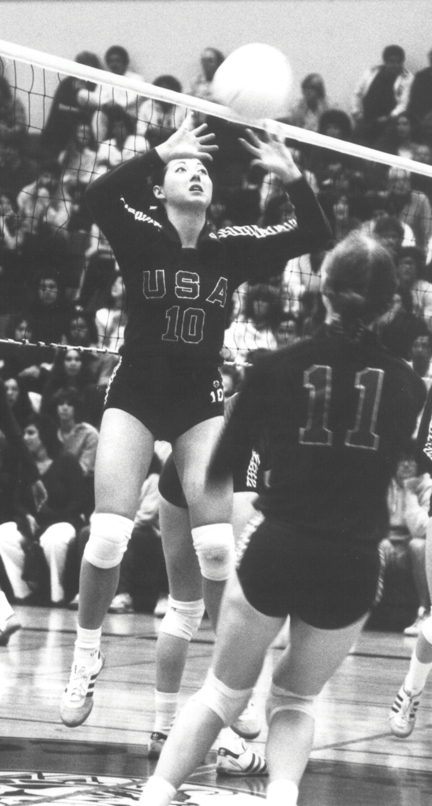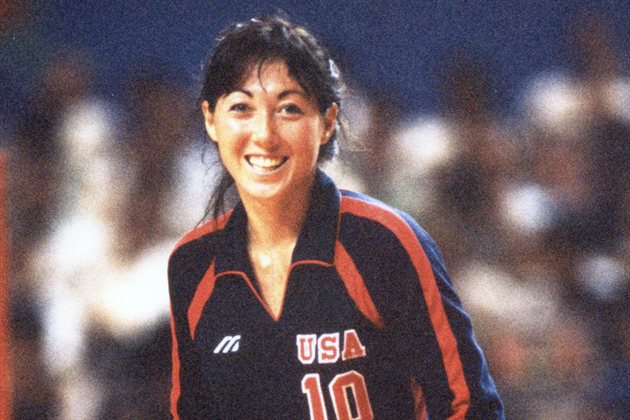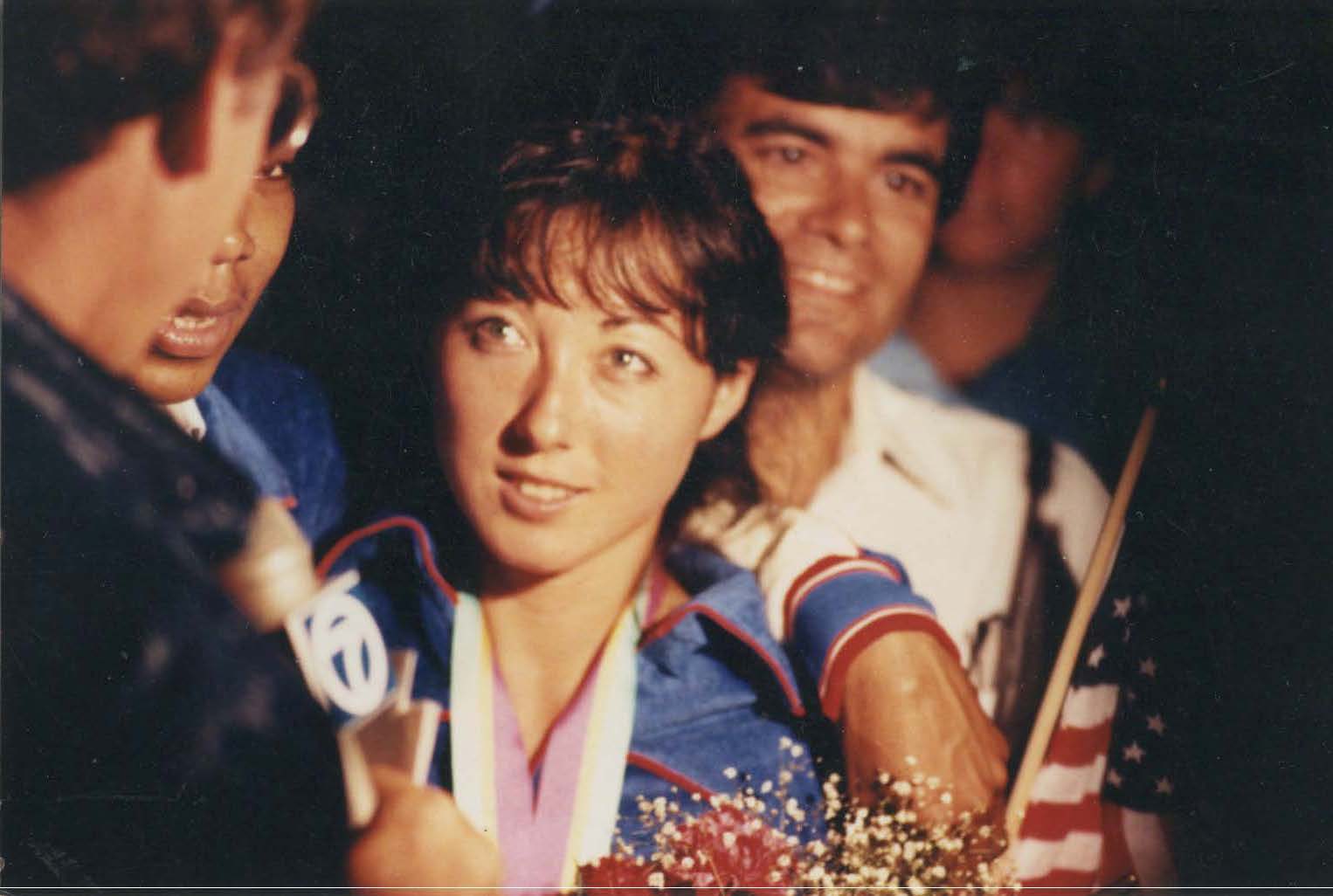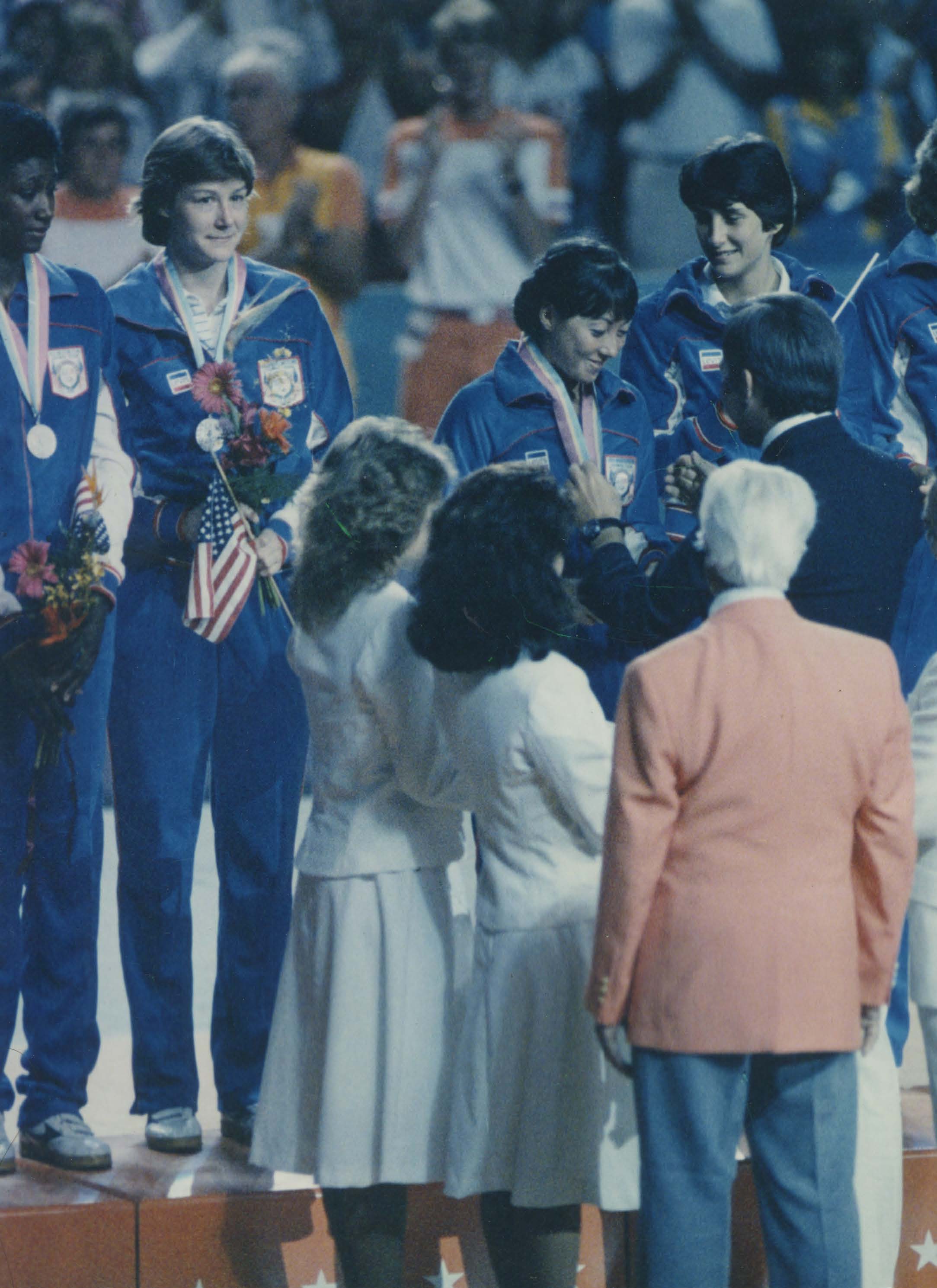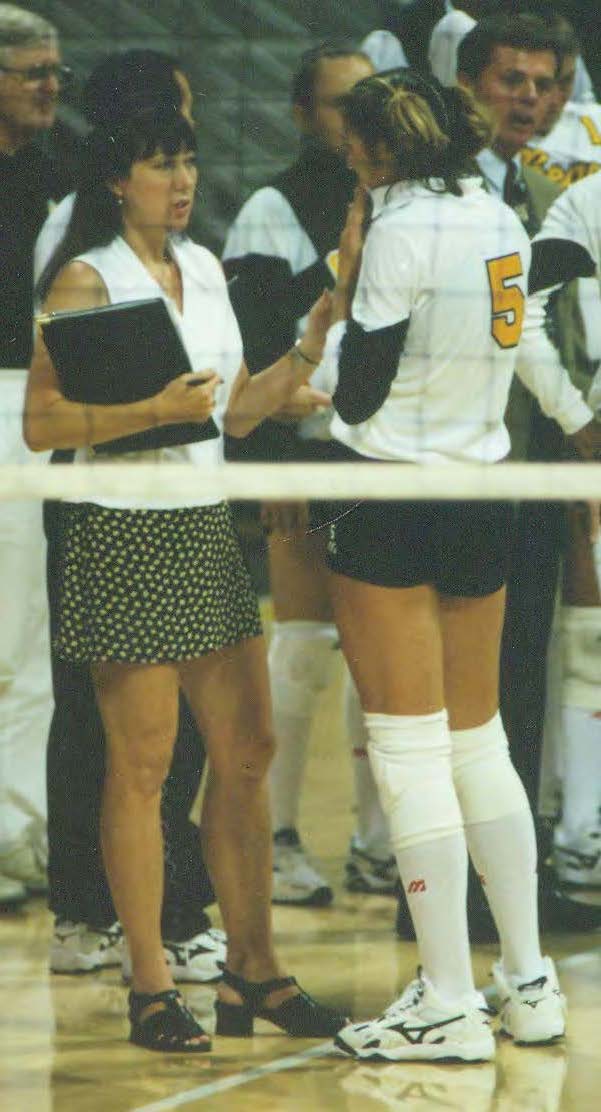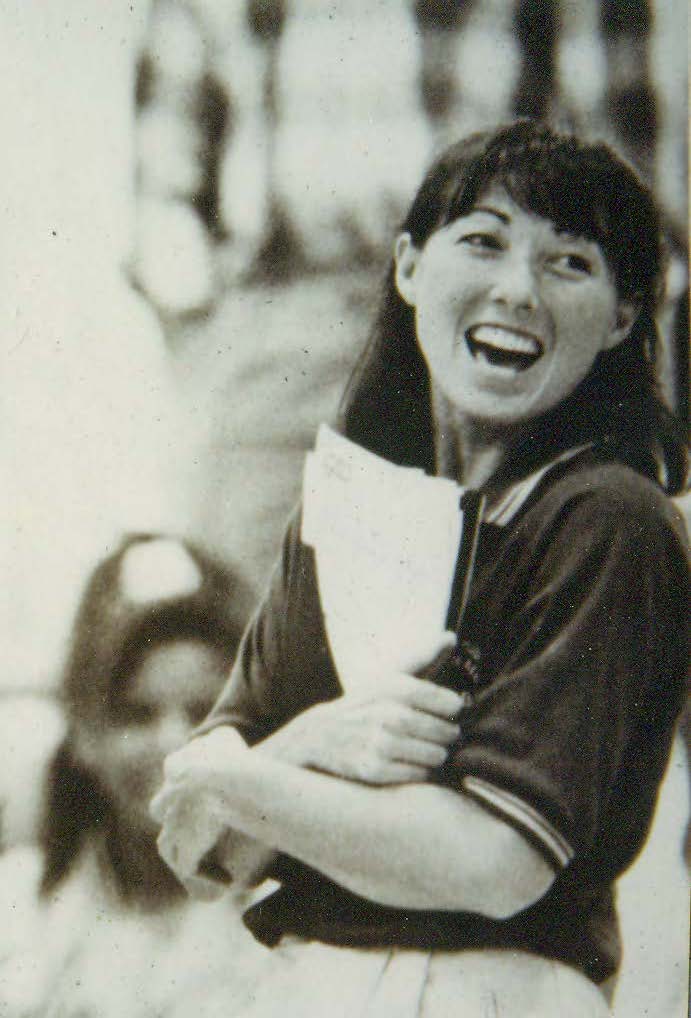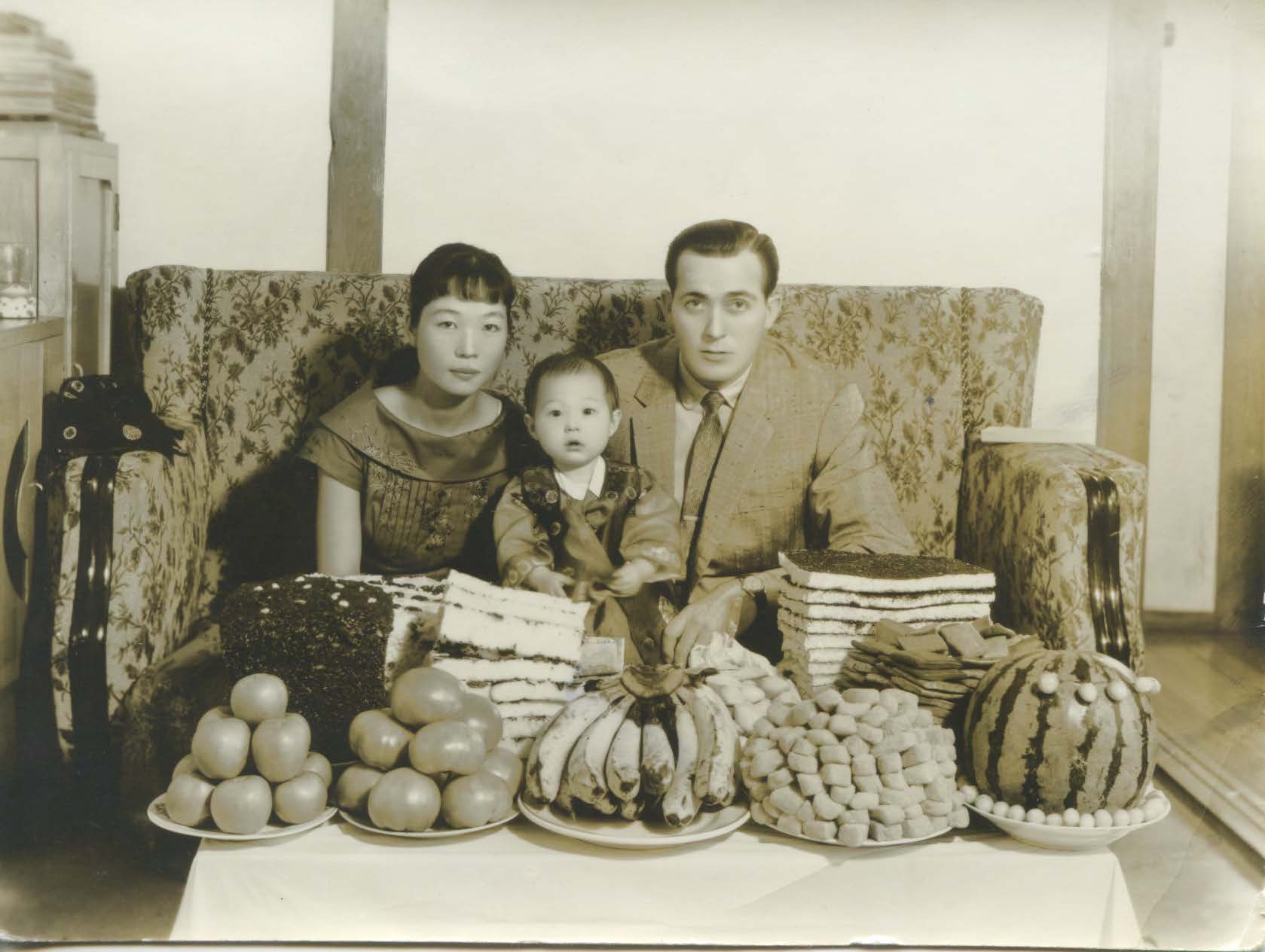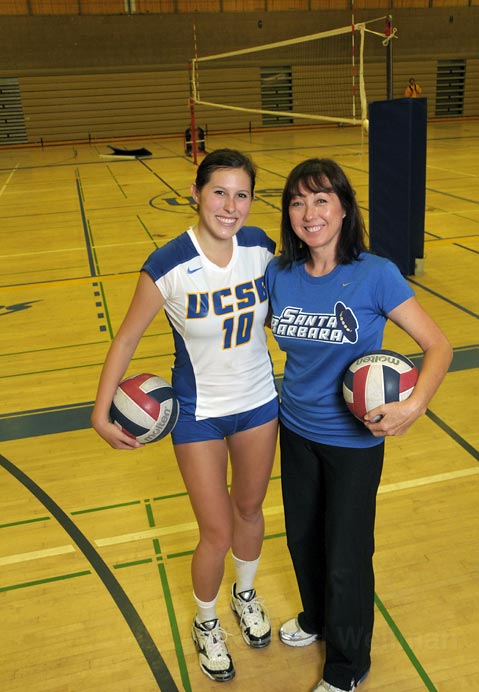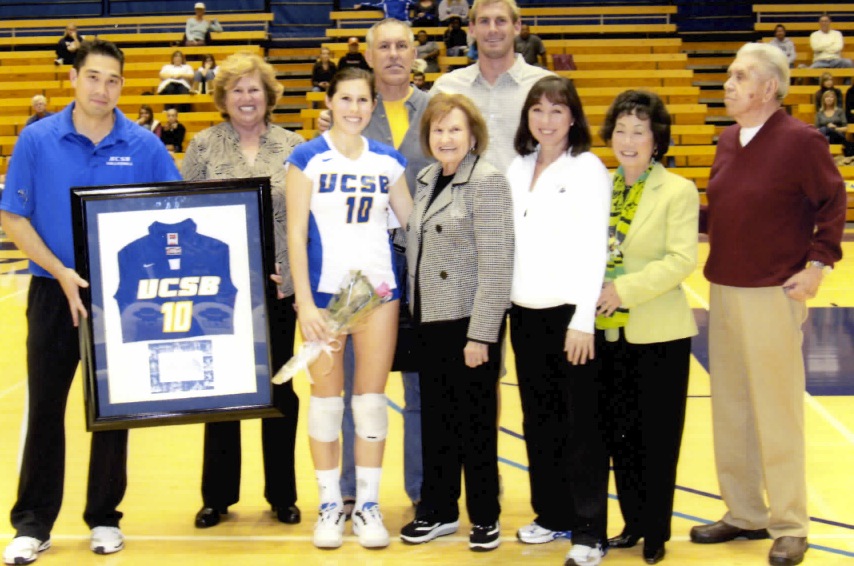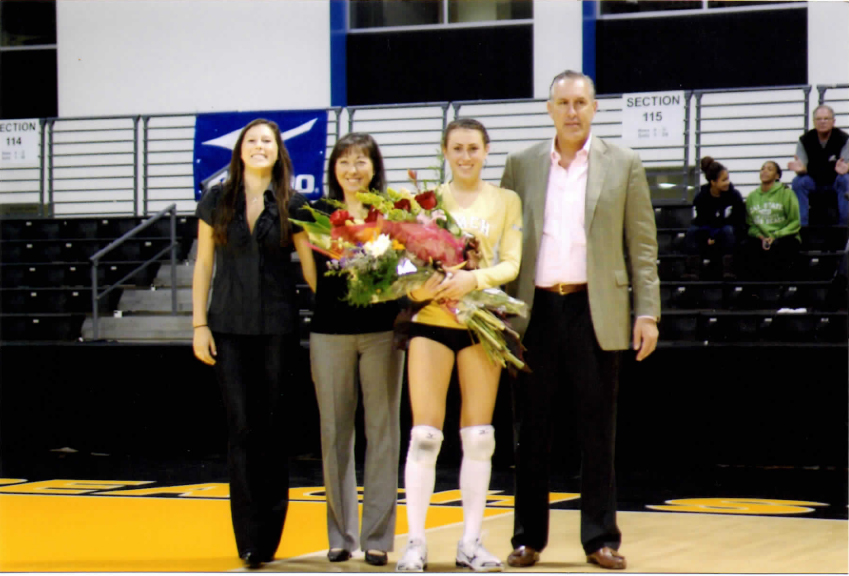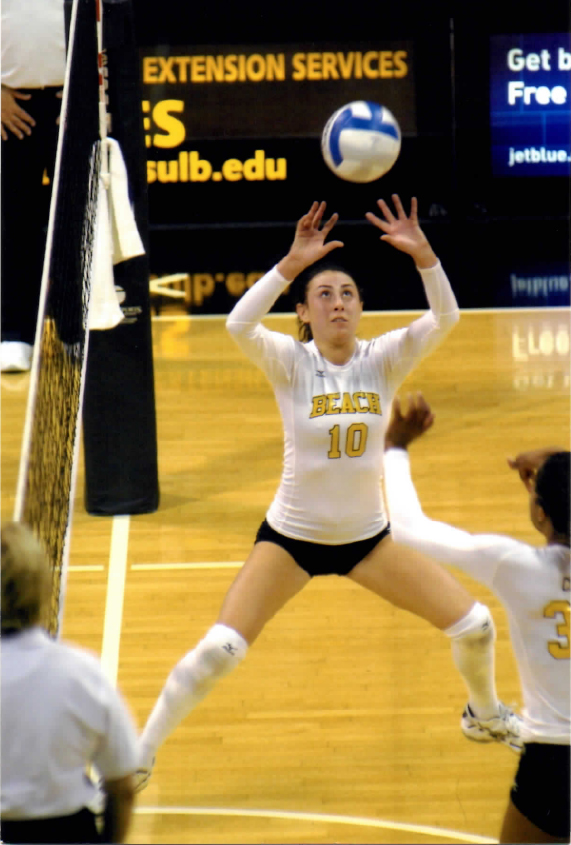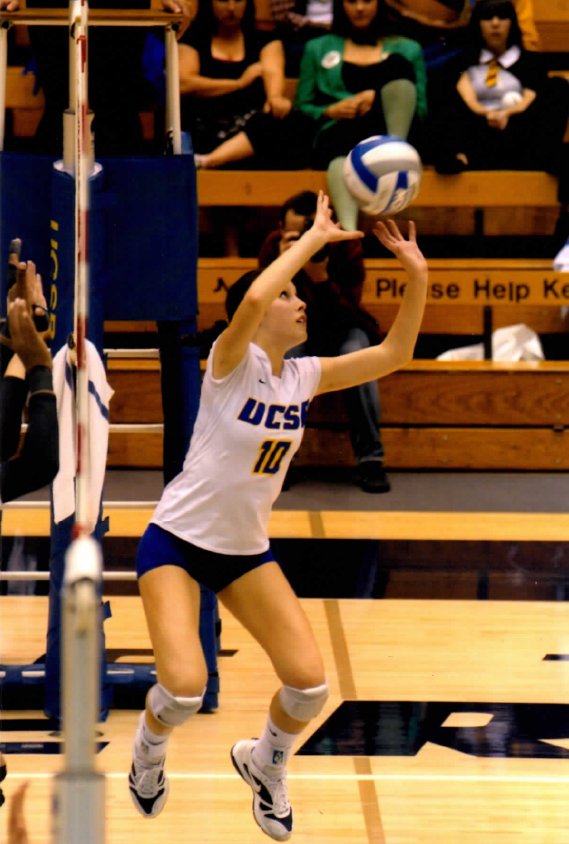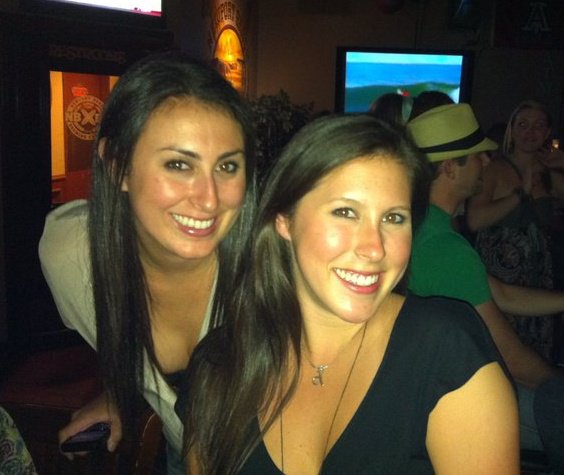|
Debbie Green is a former Olympian and collegiate volleyball player and coach whom is considered by many to be the best setter in the history of women’s volleyball.
Debbie was part of USC’s AIAW National Championship teams in 1976 and 1977. She also represented USA as a two-time Olympian in 1980 and 1984, including a silver medal in the 1984 Olympics (USA had boycotted the 1980 Olympics).
Along with being an excellent volleyball player, Debbie was an assistant coach at Long Beach State University for 23 years, retiring after the 2008 season. As a coach, she helped train six All-American setters, including Misty May-Treanor.
She was inducted into to the Volleyball Hall of Fame in 1995 as well as the AVCA (American Volleyball Coaches Association) Hall of Fame in 2004.
We were able to cover Debbie’s personal background and volleyball career and are pleased to present this interview.
Please note that HalfKorean.com comments/questions are in BOLD.
Background: The Basics on Debbie Green
Where/when were you born, raised, currently reside?
I was born in Seoul, Korea on June 25, 1958. We lived in Korea until 1960 and then came to Long Beach, California. I currently live in Seal Beach, California.
How did your parents meet?
My dad was a GI stationed in Korea and my mom was a waitress in a little coffee shop. My dad was originally from Tennessee.
Do you have any siblings?
No, I was an only child.
Do you speak Korean?
When I was very young, my dad spoke Korean, English and Japanese. He wanted me to learn all three but what would happen is that I would mix up all three languages in a sentence. I’d say something and adults would laugh. My dad said they’d laugh because they thought it was cute but I thought they were laughing at me. So, for a year I stopped talking altogether. He then backed off it and just stuck with English from then on. My mom spoke English and Korean. I remember when I was in kindergarten and telling my mom that I was an American and that I was only speaking English. When I was in kindergarten there were no Asians. I always felt different.
Did you grow up around other half/mixed Koreans (or people of mixed heritage)?
None. I remember going shopping with my mom and adults would stop us and would look at me and wonder what I was. I have hazel eyes that are almond shaped. I remember wanting to just look like everybody else.
Did you ever experience any identity issues while growing up?
I had friends but I’d get teased. There was nothing in magazines and movies to look up to growing up. I remember the summer before I started high school we had went to Hawaii for vacation and I had this sense of comfort and it was the first time I was really proud of what I looked like since I blended in. I felt relaxed and didn’t feel like I stood out. I remember thinking this is where I wanted to end up because there were so many people who looked like me.
What is your favorite Korean food?
Oh, I love Korean food; bulgogi (불고기), kalbi (갈비), bibimbap (비빔밥).
Have you been to Korea? If so, when was the last time?
I went back to Korea quite often for volleyball. It seemed like every summer we’d go back there to train. On the National Teams we’d go to Korea quite often but, after I stopped playing volleyball in 1984 with the Olympic team, I hadn’t been back there. My husband wanted our daughters to see Korea with their grandmother and myself and he sent us to Korea last September for almost two weeks.
Are you close with the Korean side of your family? Were they accepting of you?
My mom never really talked about that but I do remember my dad saying that we had a very good life in Korea but that he just thought that it would be best to move to the US for me. He didn’t think I would be accepted in Korea. My mom told me when I was older that my dad hadn’t told his mom or sister that he had gotten married and had me. I don’t think they knew that I existed until I was about four or five.
What do people who meet/see you think your ethnicity is?
I think that people have no idea. Some people look at my eyes and think I look Asian but then they see the eye color. They really have no clue. I remember years ago some people would think I was Japanese or Chinese but I never got Korean.
Volleyball: Olympics & Coaching
At what age did you begin playing volleyball? What made you decide on volleyball over any other sports?
I started playing at age 13. My dad chose volleyball for me. He had played a little beach and open gym and would take me with him. He wanted me to start playing because I was very shy and didn’t have any confidence in myself. He thought that with me being in this sport that I would build some self-esteem and confidence.
Were you into any other sports while growing up?
I remember growing up that I did swimming, ice skating, softball and exposed me to a lot of different things.
Were your parents and family supportive of your volleyball career?
Yes, they were. My mom loved to come watch me play and was very proud. I could always hear her in the stands cheering for me. But, she was also looking forward to when I would retire. Being an only child, she couldn’t wait to have a daughter again and to go shopping, go to lunch and spend time with. I was always gone.
During your playing and coaching career, have you met any other half/mixed Korean volleyball players?
Nope, none that I knew of.
You are regarded by many as one of the greatest women’s volleyball setters of all time. How do you feel about the praise you have received?
I’m proud of that because for the first year and a half I just wanted to quit every day. It was so bad and no one wanted me on the team. I have parents whose kids I give lessons and the parents ask if I can work with their daughter or have a session with their daughter and then ask me to tell them if it is even worth it. They will ask me to be honest and tell them if their daughter is any good and if not that they’ll pursue something else. I’ll tell them that I’m the last person to tell someone that they’ll never be successful in volleyball because that was all I ever heard for years, that I was too short. So there is no way I’m going to label someone.
I married Joe, who was an Olympic Water Polo player, and when our girls started playing volleyball he said that we have the weirdest sport because coaches and parents label kids at such a young age. Like you are tall and you are this position or you are not good enough or too short and you’ll never make it. He said why not just teach the kids all around skills and letting them see how they develop. It has gotten like that not just in volleyball but other sports as well with the pressure for college scholarships.
But, my coach finally realized that he would have to coach me because the other girls quit. I was short so of course I wasn’t going to be a hitter. I know some coaches dream about 6′ tall left handed setter and I was 5’4” tall, so I was proud of it.
As you noted, the “typical” setter is taller. Being that you are 5’4” and considered “short” for the position, did that give you any additional drive to prove people wrong?
Yes! I realized that my dad wouldn’t let me quit. I would beg him every day to please let me quit, I’m no good, nobody wants me. I kept practicing and when I started getting better I enjoyed it more. The other girls were nicer and treated me with more respect. But, it did totally motivate me and I would use it to prove people wrong.
What was it like to be selected for the Olympics and Team USA Volleyball in 1980 and 1984?
When we qualified in 1980, we were the first women’s volleyball team that qualified for the Olympics. We had to qualify in a tournament in Cuba. It was very exciting and, to me, it was history. In 1984, I loved it too except for not winning gold.
How was the experience of the 1984 Olympics?
Honestly, I was devastated to not win gold. We had played China four nights before and had beat them. We had to match up against them again for the gold and we lost. I felt like a failure and I remember that as soon as the last ball dropped that I put my head down in the huddle and my eyes were filling up with tears and Flo (Flo Hyman), who was a 6’5″ top hitter and the oldest one on the team, put her big arms around all of us and made eye contact with me and said, “We hold our heads up. We should be proud of what we have done. We walk out of here with our heads up.” She was so poised. I was thinking how we had disappointed so many people that had believed in us and because Arie (Arie Selinger), our coach who was from Israel, had said that unless we win the gold medal, all of our hard work and what we had done wouldn’t be remembered because Americans only remember gold medalists. So, I thought that 12 years of training and no one would acknowledge us or what we did. But, he was wrong. At the time though, I truly believed it. It’s funny because during the opening ceremonies, nobody really knew who we were. They knew Mary Lou Retton, Carl Lewis and some of the basketball players but they didn’t know volleyball. We were hoping to get at least five minutes on TV. But, during the closing ceremonies when we were walking around the stadium people were yelling from the stands, “There is the volleyball team! There’s Debbie!” and I remember thinking that I was shocked that they knew our names and the volleyball team. We had no idea that we had gotten that much publicity and TV time so that was so much fun. They were excited to see us and not disappointed that we didn’t win.
Being that the 1984 Olympics were in Los Angeles, did it make it even more special to participate that year?
Right before the 1980 Olympics and President Carter announcing that we were boycotting, Flo had started talking about the 1984 Olympics and she was the oldest one. I remember that my best friend, who was also on the team and we had played together since we were 14, saying if she was crazy with four more years and that she’d be old and we were going to be 22 and that we needed to get on with life. So we weren’t really thinking about it. I was convinced later on to train for the 1984 Olympics. I think that part of the reason was that I thought it would be neat to play at home and be able to have family and friends be able to watch.
Speaking of the boycott, was there disappointment that you were unable to compete in the 1980 Olympics?
We were devastated. We gave up a lot to train but, of course, it was our choice. But, the government didn’t give us a penny and didn’t subsidize us and then they are telling us we can’t do something that we have dreamed of for eight years, training six days a week, to get Russia out of Afghanistan. We were thinking how is that going to help? You think during training that you can get beat out by someone bigger, taller, stronger who can take your position. You can get injured and not make the team. So after all that, it was hard.
The boycott happened right before the Olympics. We had a Christmas break and we never got more than a few days off a year at a time, in a row. I remember we had a four or five hour meeting with our coach and saying that we needed a week to ten days off. He had promised that if we had qualified for the Olympics that we’d have a vacation and then we’d start up real hard and then he backed out saying that no one else in the world is taking 10 days off the winter before the Olympics. When we got back from Christmas, which was about a week, there were talks about the boycott and it was on the news. At that time, we were the only team training year round at the Olympic training center. We were just about to start training and we were hearing this. Someone from the Olympic committee would give us a pep talk telling us that we were going to go and we’ll find a way to get us ready. So, we trained up until the boycott was announced. At the time, we were called “anti-American” because we’d be on the news and quoted in the newspaper stating that we were against the boycott. I remember that one of my teammates had almost gotten into a fight at a grocery store. They were asking how could we go against the President. I was thinking how did we become the enemy? We were the best team in the world and were one of the few sports in 1980 that were beating East Germans and the Russians, who were dominating in sports like gymnastics and swimming. I was sure we were coming home with gold if we had competed.
After the Olympics, you played professionally in 1987-88 for the Los Angeles Starlites of Major League Volleyball. How was that experience?
It was fun but we were not playing in front of crowds like we were when we played internationally or when we were the USA team touring. I was also working at the same time as I was playing professionally. Plus, I had one baby already.
They made me stop playing in my second season because I was pregnant with my second child. I thought I could keep playing and my doctor said it was okay but there were women in the stands who would write letters to the president of the league asking how could they let me play. I still have letters because I was so mad that they were making me stop playing.
Did you ever consider playing professionally overseas?
People would ask but I was really tired from traveling right after the 1984 Olympics. I had trained since I was 14, year round, for 12 years and was 26 and I wanted to relax and get married and have kids. So, I just wanted to stay home and spend time with my mom and friends.
Of all your accomplishments, is there one that sticks out most to you?
The Olympics, even though we didn’t win gold. I’m so glad because after the boycott I was not going to train four more years. It took my coach a while to convince me. I think the deciding factor was that I thought that in 1984, if I don’t train four more years and I’m sitting on my couch watching some of my teammates on TV, would I be excited for them or would I be thinking, “oh my gosh, I’m not there” and would I regret my decision. I knew I would have regretted it, so I trained four more years.
My mom was a huge factor in me going four more years because everyone criticized us for being the first team to leave everything to train. People would say that we weren’t normal, a group of women living, training together not working, not going to school, giving up full scholarships. Many of us were the first female athletes to give up full scholarships to USC. They were saying that we didn’t know what “real life” was and that all we did was train. I thought that at 22 with the boycott and if I went to 26, that people would really think that I’m not normal and that I was too afraid to live in the real world. Part of me was getting tired of being criticized. But, I remember the night before the boycott was announced, we had been on tour and we on our way back to our hotel and we heard President Carter’s official boycott announcement. We all met in the hotel lobby and it was really sad and we were thinking there would still be a way to get there (Olympics). Arie met with all of us and let us know that he was going to coach for four more years and let us know that he would like for all of us to continue. He asked us and I had said no. I then called home, my mom answered and all I could say was, “Did you hear?” and then I started crying. She said that she had heard and that she knew that I could do it four more years and that it wasn’t that long. So it was like she gave me permission as an only child that I could do what I’ve dreamed of four more years. I’m very grateful to her.
Do you wish that you could have played in the 1988 Olympics in Seoul?
They had switched coaches and the new coach had met with me. I had heard that he was very different from Arie, my previous coach. He met me for breakfast and told me that they were moving the program to San Diego and that we’d be training with the men’s team and that it would be more fun and have more free time. I thought that it sounded like fun but I asked why would he would want me as his setter. I’d been trained by Arie for almost eight years and the style I am was what he had taught me and that I’d heard that he didn’t like that style. I decided not to train four more years under a different coach and it was just time. When the 1988 Olympics were going on, I was in the hospital delivering my second daughter.
The Korean Olympic Committee had invited me to be a guest during the 1988 Olympics. I felt it was so special but I couldn’t go because I was in my ninth month of pregnancy. It would have been great and would have loved to have gone.
So let’s move on to your coaching career. How long did you coach at Long Beach State and did you ever coach anywhere else?
I coached there for 23 years. I volunteered for two years at UC Santa Barbara after I had retired from Long Beach State. My younger daughter had two years left at UCSB and they are in our same conference and the only time I really got to see her play was when we were playing against her. She was playing against her mom, her sister and her club coach for six years. My older daughter played for me at Long Beach and was the last setter that I trained. She said, “Mom, you gave me four years and helped me. Now you need to help Dana.”
You had enormous success as a coach at Long Beach State. Was there a specific reason you ended up coaching there?
We won three NCAA championships and went to eight NCAA Final Fours. Long Beach was one of the weakest teams in the conference when I started coaching. I remember my dad asking me why was I going to coach there because I would never win a championship, won’t be able to recruit and why don’t I go back to USC since I had played at USC for two years. But, I was living in Long Beach at the time and Brian (Brian Gimmillaro) had asked my teammate, Rita Crockett, and I to help. We joined him in his second season there in 1986. Hearing that nobody thought we could win at Long Beach motivated me and four years later we won our first national championship in 1989. It was unheard of, building a program from nothing in four years.
Did you ever consider coaching for Olympic teams?
In 2009, after my daughter Nicole’s senior year, she went to Colorado Springs to try out for the National Team and she made it. The Olympic coach, Hugh McCutcheon, called and asked what I was doing. I told him I was retiring and then he asked if I had any interest in helping us and I started laughing. I told him that I was retiring because I don’t want to be in the gym six days a week anymore. He laughed and understood. He said he had called because he had invited my daughter Nicole to be with the National Team and that he wanted me to know that it was what he saw in her and not because she was my daughter. To me, that meant a lot because I knew people would say things like she made it because of me. She’s another one that when she was 14, my friends would hear other parents saying, “Which one is Debbie Green’s daughter?” and “Oh, she’s not that good.” The coach was saying that she enjoys it and is having fun. By her senior year of college she was one of the best setters, on the National Team and then played professionally in Europe. And Dana played in college all four years, started all four years, and played in Europe for one year.
Nicole, after playing in Europe, didn’t want to go back overseas and wasn’t sure what she wanted to do. So she coached high school as an assistant coach and volunteer coached at Long Beach State for one season. She said she couldn’t continue to volunteer and not get paid and needed to get a job. She got a call from the University of Pacific and a month later she was gone and she loves it.
Both of your daughters followed in your footsteps of playing collegiate volleyball. You briefly touched on it, but do you think there was difficulty for them being “Debbie Green’s” daughters?
They were compared. My younger daughter’s personality is more like me, real feisty and fiery. When my old teammates would watch her, a lot of them are coaches and were recruiting, they’d tell me that it was me out there. My older daughter’s personality is not like me. She’s more calmer, quieter. I think it was harder for my older one as far as being compared when she was younger.
They both had dreams of playing in college, grew up watching Misty May play, whom I coached at Long Beach. I told them that when you go to these tournaments that you will have coaches come watch you out of curiosity because you are my daughters. But, it will be up to you to get them to come back the second and third time to get recruited.
In addition, there were many coaches who wouldn’t recruit them because they just assumed that they’d go to Long Beach.
Do you still follow volleyball?
I’d end up going to the last two Olympics in 2008 and 2012 but that was mainly to watch Misty May-Treanor.
Now that you are retired, do you look back on your playing and coaching career and think you would have done anything differently?
If I could go back and win the gold medal, I’d change that! I can honestly say that no matter what happens, you want to know that you gave it 100%. I’m so glad that I stayed four more years to participate in the 1984 Olympics. I didn’t know after I retired what I wanted to do other than I wanted to be a wife and a mom. But with working, I didn’t know what I wanted to do but I knew I didn’t want to do two things; I didn’t want to be a PE teacher and didn’t want to be a coach. And, then I ended up coaching. I never thought I’d like coaching and was only planning to do it for one to two years. It turned into 23 years!
What are you up to these days? Are you still involved with volleyball in any capacity?
I have one small camp I run. I have two of those this summer in July. I’m fixing up my house now that I have two empty bedrooms with my daughters having moved out. I also give private one-on-one lessons with my regular kids and I love working with them and seeing them develop.
Random
We know that you are married to another former Olympian, Joe Vargas. Prior to being married, did you ever had any ethnic dating preferences?
I didn’t really have time to date when I was younger. I was always around athletes and always dated athletes. The only requirement I had was that he had to have more muscles than I did.
What are some of your hobbies and interests?
No. How fun is that? My friends tease me because I always love going to the movies. Because we always had Sundays off on the National Team and you were so tired by Sunday that you didn’t want to do anything to make you even more tired before Monday so I would go to the movies. To me, it was a great mental escape.
Anybody specific that you have had respect for?
I remember a couple international volleyball players that I would watch when I was younger. I have to say my parents who have always been supportive and there for me. I remember a football player when I was very young, Mercury Morris, that my dad had pointed out to me who was small but made it in the pros and was so fast.
Do you like soju?
I remember I had it in Korea but didn’t care for it.
How did you find out about HalfKorean.com and what did you think about HalfKorean.com when you first saw it?
I just thought it was so cool and that there are all these half Koreans. I wish there was something like this when I was growing up, to have role models and successful people. I think it is wonderful.
Any words that you would like to pass on to the mixed Korean community?
I wish that growing up that I was more proud of who I was being unique and different. When you are young, you just want to fit in and don’t want to look different. My daughters are a quarter Korean and quarter Mexican, Polish and whatever my dad was. He would always say “Tennessean.” But they love being a little of this and a little of that because people ask them, “What are you?” My older daughter has the almond shaped eyes and has real curly hair and is real different looking. They like it and are proud that they are a quarter Korean. It is funny because they’ll go into businesses and stuff and Nicole will say she knows something is in Korean and people will ask her how does she know that. She’ll tell them she’s part Korean and they are surprised. They both just love their halmoni (할머니 / grandmother). I’m really glad that my daughters are proud of their heritage because it took me a long time.
We want to thank Debbie for spending time with us for this interview and giving us great insight into her volleyball and life experiences.
We also want to thank Katherine Bradtke for helping us get connected with Debbie for the interview. It was much appreciated!
If you are interested in reading more on Debbie’s career, you can visit the Volleyball Hall of Fame and/or AVCA Hall of Fame for her profiles on those sites.
Interview by: David Lee Sanders
Posted: 6/17/2013
|
